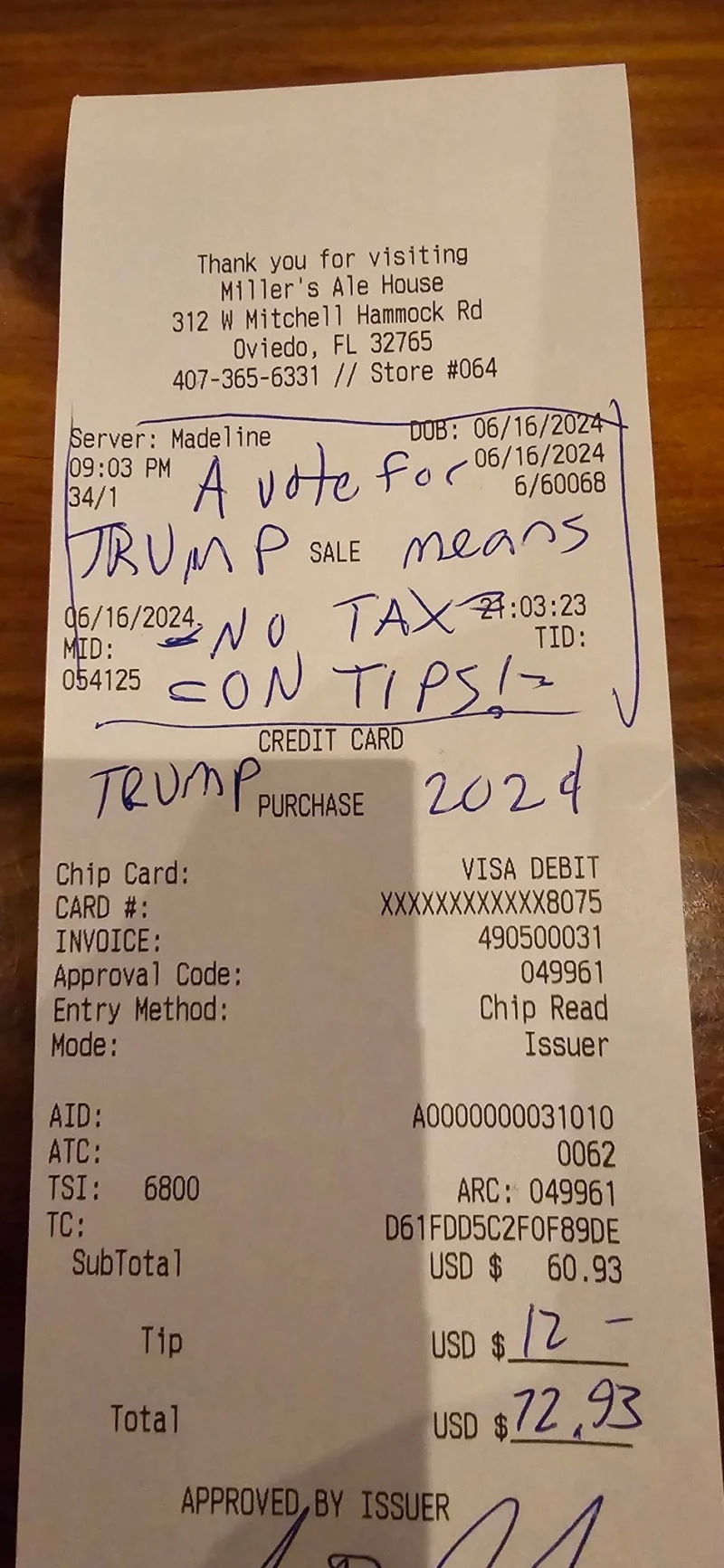When I left my last bartending job, my boss paid me a thousand dollars to sign a contract promising I wouldn’t sue him.
He might’ve been a little worried about the 9-hour shifts with no breaks, 3 am to 9 am clopens, or that time he “forgot” to pay us the new, higher minimum wage for four months.
I wasn’t planning on suing. I wouldn’t even call myself a disgruntled employee.
There’s a certain amount of abuse that’s expected in this industry, and most of us will take it on the chin.
If I’m making rent and I can get myself a little treat every once in a while, I can deal with the aches and pains of being overworked and underpaid.
But what happens if you do look behind the curtain? If you track your money or read that labor law poster your manager has hanging in the office?
You’ll probably find they’re doing something a little shady, if not very shady.
In recent years, restaurants across the U.S. have been at the center of significant legal battles, facing allegations of exploiting workers through wage theft, illegal tip pools, and unpaid overtime.
These violations have led to substantial class action settlements, totaling over $641 million across various industries for wage and hour disputes in 2021 alone.
While this figure spans multiple sectors, restaurants consistently rank among the industries most affected,
with major chains like Burger King and Taco Bell facing lawsuits resulting in multi-million dollar payouts.

Employee Rights | Image by Employee Rights
This is a real-life story about a server whose real-life name is not Jeter.
Jeter had been in the industry for over 30 years, and at this particular restaurant for six years.
The money was good—six figures good—so the staff didn’t really notice or care much that they weren’t getting paid overtime.
When your base pay is $2.13 an hour it doesn’t make much of a difference , but that didn’t make it legal.
Jeter discovered that a percentage of the servers’ tips were being used to pay for manager bonuses, and that this had been happening for years.
This raised red flags for him, and he started asking more questions.
“If the math isn’t mathing, I start getting real inquisitive,” he says.
On top of that, Jeter found out that the restaurant was deducting a laundry fee from all the employees’ paychecks,
even though most of the workers were responsible for washing their own uniforms.
It was yet another example of how the restaurant had been skimming money from its employees for years.
That’s when Jeter decided to sue, eventually reaching a settlement with the restaurant.
But, as Jeter puts it, “the lawyers were really the only winners.”
After leaving that job, Jeter began working for a different restaurant where they also tip pooled.
Jeter says that at 167 Raw, a server would sell around $5,000 a night but only take home about $275 in tips.
Once again, the math wasn’t mathing.
He saw the managers hand out cash to the back-of-house staff every week along with their paychecks, which seemed a little odd.
Jeter learned one of their dirty little secrets: they were taking a portion of the servers’ earnings and using it to pay the kitchen staff and even some managers.
After a year of putting up with the stealing at 167, Jeter quit and found legal representation.
This time around, he had some help from a coworker.
After talking with Jeter, another server,

Tips | Image by Tips
Taylor, went to the director of operations’ office and secretly recorded her explaining the tip “redistribution.”
A few weeks later, Taylor brought the recording to the Department of Labor. The investigation took about a year, and they recovered $624,017 for the 92 employees at 167 Raw. The payout came in December 2021, and management played it off as a Christmas bonus for the staff.
Even though the payout was significant, Jeter and his coworkers felt it didn’t make a big enough impact on the restaurant.
After a couple of weeks of negative attention online, 167 Raw was back to business as usual.
“It’s millionaires stealing from hundredaires,” Jeter says.
The settlement, while a victory on paper, didn’t seem to affect the restaurant’s long-term operations or reputation.
Jeter’s story isn’t an isolated incident—it’s a reflection of a much larger problem within the restaurant industry.
Across the country, workers face a variety of abuses that violate labor laws, but often go unchecked.
Here are some of the most common ways restaurants take advantage of their employees.
- 80/20 Rule Violation: Tipped employees, like servers and bartenders, are supposed to spend no more than 20% of their time on non-tipped duties (such as cleaning or prepping). If they exceed this, they should be paid the full minimum wage. However, many restaurants ignore this rule, having workers do hours of side work while paying them the lower tipped wage.
- Unpaid Overtime: Many workers are forced to clock out after 40 hours and continue working off the clock, depriving them of legally required overtime pay.
- Illegal Tip Pools: Tip pooling can be legal, but only when the tips are shared among front-of-house staff. Some restaurants make tipped employees share their earnings with back-of-house staff or even managers.
- Misclassification: Restaurants sometimes misclassify employees as “Shift Leaders” or independent contractors to avoid paying overtime or providing benefits. These workers often end up doing managerial tasks without any of the legal protections or compensation.
- Unpaid Breaks and Illegal Deductions: Employees may be forced to take unpaid breaks or have deductions taken from their paychecks for uniforms, cash shortages, or broken equipment. When these deductions drop an employee’s pay below minimum wage, they’re illegal.
How to Fight Back:
If you’re a restaurant worker facing these types of violations, there are several ways you can take action to protect yourself and your coworkers.
Unfortunately, many restaurants will continue to take advantage of workers as much as they can.
It’s not illegal unless they get caught.
The only way to get retribution is by hitting them where it counts.
Financially and by putting a Stain on their reputation.
- Know Your Rights: Familiarize yourself with the Fair Labor Standards Act (FLSA) and any state-specific labor laws. The more you know, the better equipped you are to recognize when your rights are being violated.
- Document Everything: Keep detailed records of your hours worked, tips received, side duties, and any communication with management. This documentation will be crucial if you decide to pursue legal action.
- Form a Union: Unionizing can be one of the most effective ways to protect workers’ rights. With collective bargaining power, employees can negotiate for better wages, benefits, and working conditions.
- Seek Legal Help: If you suspect that your employer is violating labor laws, consider contacting a lawyer who specializes in wage and hour violations. Organizations like the Restaurant Opportunities Centers United (ROC United) can also offer legal resources.
- File a Complaint with the Department of Labor (DOL): If you’re not ready to sue, you can file a complaint with the DOL. They can investigate and help recover unpaid wages.
- Suing the System: Workers like Jeter have shown that suing the system can yield significant results.
While it can be a lengthy and stressful process, holding employers accountable through legal action often results in meaningful change, not just for the individuals involved, but for other workers facing similar issues.
Financial penalties and bad press are often the only ways to push restaurants to change their exploitative practices.
Like what you’re reading?
Trending

The Top 5 Cities For F&B’rs
Cities where we can flourish

Weighing Culinary Diplomas Against Kitchen Battle Scars

Who is the Bitchy Waiter
Darron Cardosa, known as The Bitchy Waiter, took his F&B…

Hooking Up With Coworkers
Is It Ever a Good Idea?

Top 5 Cities Where F&B Pros Shouldn’t Detour

The Hostess with the Mostless
If you’ve ever worked in a restaurant, you’ll recognize the…

$1.6 Million in Unpaid Tips head back to Servers Pockets
Explore the ongoing battle for restaurant workers' rights in South…

Serving Philanthropy with a Side of Santo
Guy Fieri shares insights on his tequila collaboration, life balance,…

Drink Me
Dive into the "Traveling Bartenders" Facebook group, where bartenders find…

No Tax On Tips
Trump’s promise of no taxes on tips sounds great, but…



